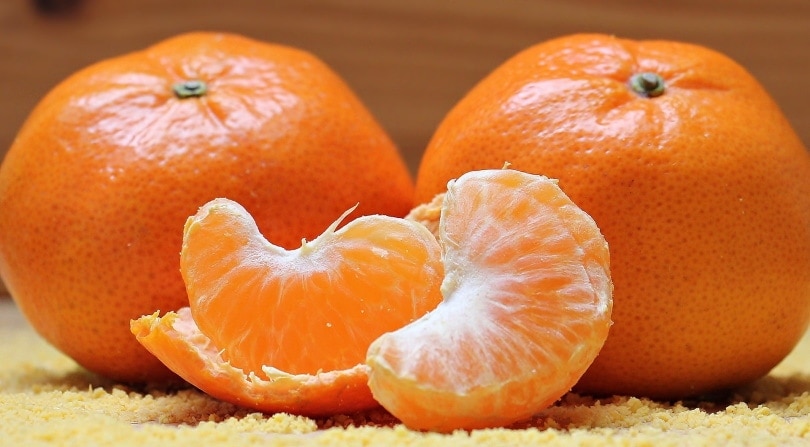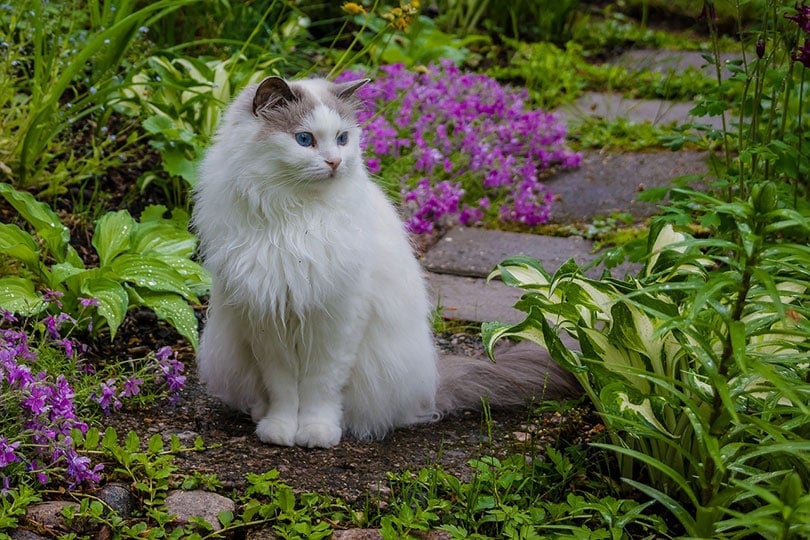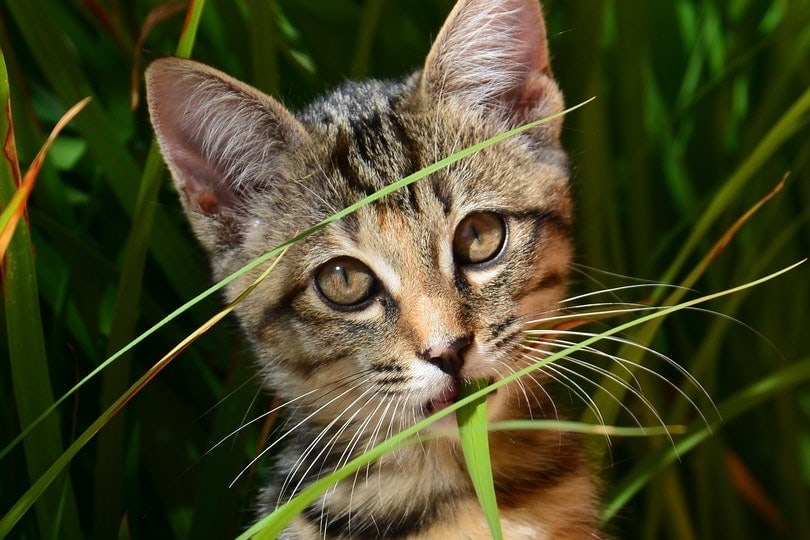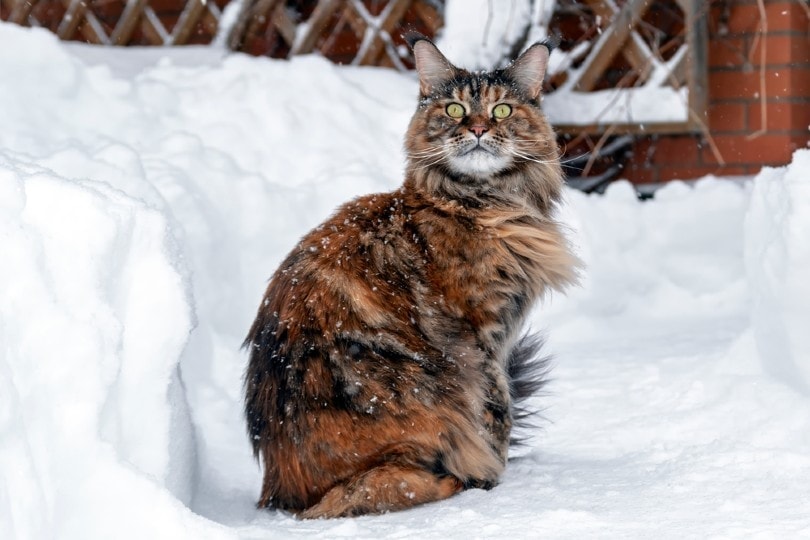There is nothing better than a sweet glass of ice-cold orange juice on a hot day or better yet, a freshly sliced-up orange. Not only do oranges taste great, but they are also loaded with healthy vitamins.
While snacking on this delicious fruit, you may notice your cat staring at you pleadingly and wonder whether it’s safe to give your feline a taste. But can cats eat oranges? Are these juicy fruits safe for your feline friend?
The short answer is no, oranges are unfortunately not safe for cats. Oranges contain high amounts of sugar, which is not ideal for your furry friend, and they are actually toxic to cats, like many other citrus fruits.
Let’s dig a little deeper into what you need to know about feeding oranges to your cats.
Why shouldn’t cats eat oranges?
While oranges contain vitamin C that is wonderful for humans, cats synthesize their own vitamin C and unlike us, do not need to get it from their diet except in rare circumstances. Oranges are also packed with sugar, which cats shouldn’t eat, and it can swiftly cause health issues for them.
Oranges and their skin also contain oils that are toxic to cats, and ingestion of these oils can cause gastric problems, like vomiting and diarrhea, and may even cause nervous system disorders. Oranges and other citrus fruits like lemons also contain compounds called psoralens, a chemical that can cause photosensitivity.
The ingestion of oranges can lead to citrus poisoning, a mild yet debilitating condition in cats, although it is rarely fatal. It’s important to note that both the fruit and peels are toxic to cats, and the peels may be even more so because they have a higher concentration of the oils.
Signs of citrus poisoning in cats
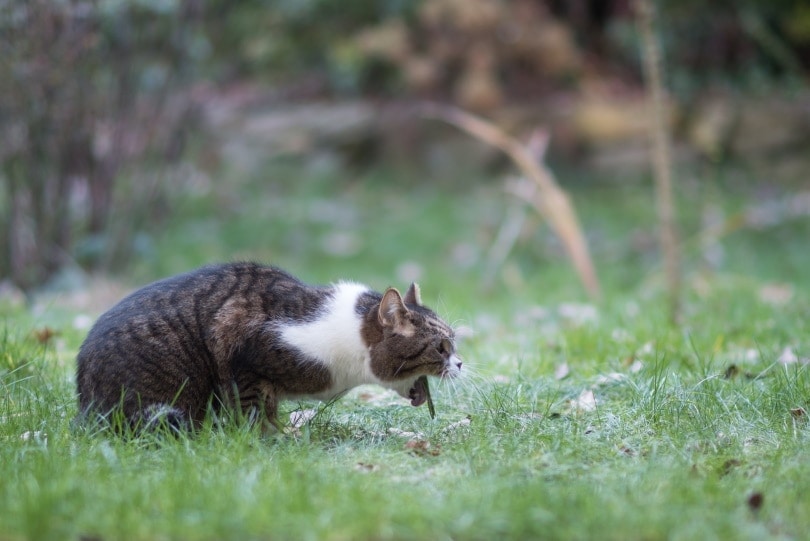
Whether your cat took a sip of your fresh glass of orange juice or ran off with a few peels, they will likely begin to show symptoms right away. These symptoms will vary depending on how much orange they have consumed, and the symptoms will be more pronounced and severe if they have eaten a fair amount. These include:
- Nausea
- Vomiting
- Diarrhea
- Drooling
- Listlessness
- Shaking
- Photosensitivity
- Seizures
If your cat has ingested any amount of orange and displays any of these symptoms, it is highly recommended to get them to a vet right away. Fortunately, citrus poisoning is rarely fatal, and most cats recover fully with the right treatment.
How can I stop my cats from eating oranges?
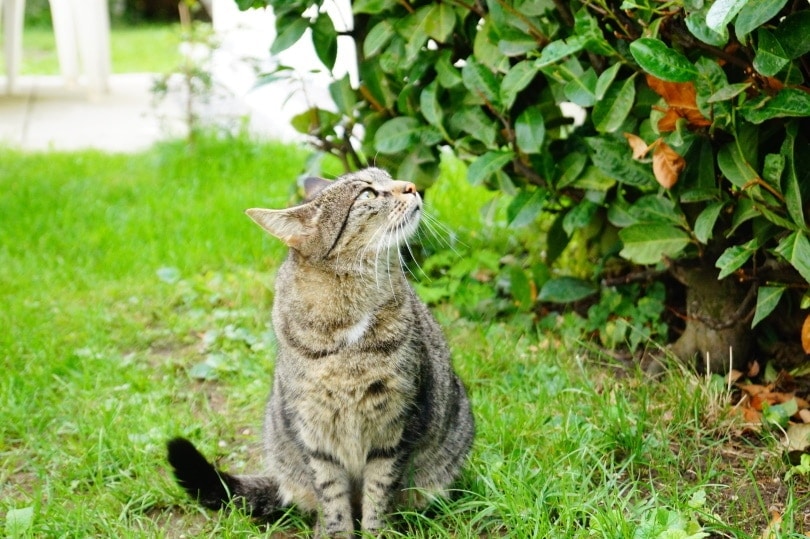
Luckily, you don’t need to do much to stop your cat from eating oranges or citrus in general because they generally do not enjoy the taste or smell. In fact, cats so dislike the smell that oranges are often used in cat repellant sprays! Of course, oranges or lemons can be present in some foods or drinks, and you should never give these to your cat.
There are also plenty of common cleaning sprays that contain citrus, which could potentially harm your cat. While they are unlikely to ingest these products, it’s still a good idea to avoid spraying them anywhere near your cat’s sleeping area, toys, food bowls, or litter box.
What fruits can cats eat?

Cats are obligate carnivores and in general, shouldn’t eat much fruit. Specially-made cat treats are a better option to give your feline, but many fruits are safe to give cats occasionally and some are even included in commercial cat foods. Remember that moderation is key when giving cats any kind of fruit. It should not exceed 5%-10% of their daily caloric intake and ideally, should be given only once or twice a week. Fruits that are safe treats for felines include:
- Blueberries
- Strawberries
- Bananas
- Apples
- Watermelons
Final Thoughts
Cats do not require any additional vitamin C in their diet because they synthesis it themselves. So, while oranges may be a high-vitamin C snack for humans, cats do not need it, and it can even be dangerous for them. There is a possibility of citrus poisoning due to the oils in oranges, and the high sugar content is not ideal either. If you want to give your cat a treat, try specially made cat treats or healthy, cat-safe fruits instead.
For more information on what cats can eat, check out:
Featured Image Credit: Pixabay

